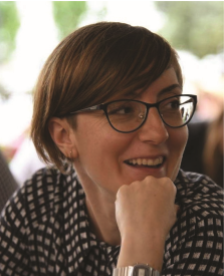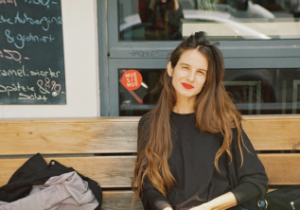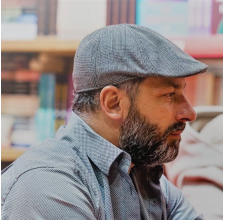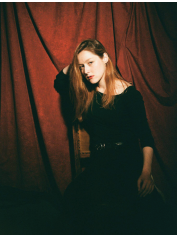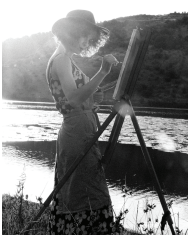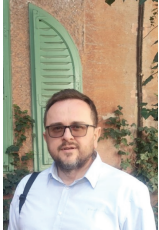Ana Pejovic (1980, Prijepolje, SFR Jugoslavija) is a cultural professional and a translator from Belgrade. She has been working in the field of literature since 2002, first as associate editor and editor in the publishing house RENDE, and then as associate editor and editor in Croatian-based publishing house VBZ. in 2009, together with Vladimir Arsenijevic, she founded association KROKODIL. She is a freelance translator from English.
Festival KROKODIL was initiated in the year 2009. It came to being as an attempt to create a new and sustainable platform for the presentation literary scenes, writers and books from the region of former Yugoslavia. Year 2009 was the time when it was still possible to hope that a common literary scene and a common book market are possible, particularly in central parts of former Yugoslavia where the common language is spoken. And by market I do not mean the commercial aspect of it, but the notion and the fact that books freely flow across the borders, uninfluenced by daily politics / protective publishing scenes and, last but not the least, sharp differences in prices. This common literary scene, bordered by language, would certainly have more impact on the European and global literary arena then the four tiny and thoroughly provincialized (national or even ethnic) literatures which is the essence of the reality as it is today and the reason why these literatures (or, again, rather: this literature) became so insignificant and even invisible in the eye of the average book lover globally. This is why in 2009 we started off with our festival, in the wave of optimism that somehow grew after the year 2000 (and the end of all wars that split Yugoslavia apart). We strongly believed that new narratives are possible as well as creation of new, better realities, and that one of the primary roles and even obligations of culture is to make bridges and establish communication.
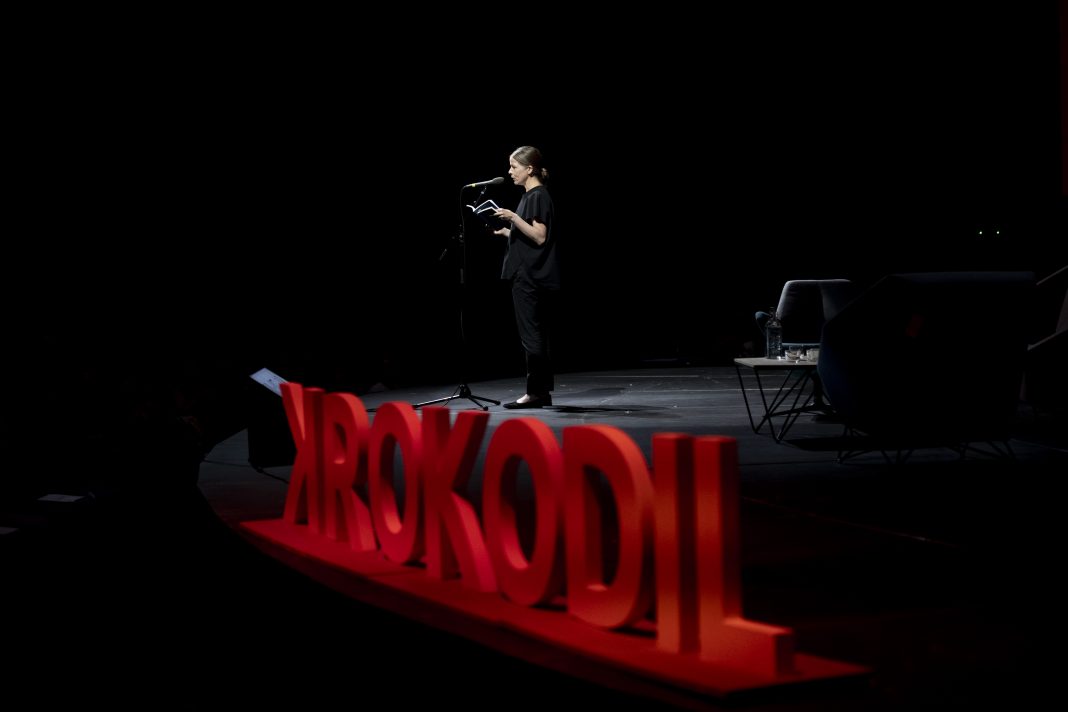
Ten years on, and almost all the optimism is gone. Our countries are stuck in the never ending cycle of nationalistic dynamics strengthened by further development of identity politics. In the post-truth ambient, facts are rapidly replaced by emotions and solidity of local values and tight parochialisms became the order of the day. This time round, this process does not only refer to what we call “Our region” but rather Europe and also the whole world.
Throughout these ten years, KROKODIL festival was held eleven times. KROKODIL is actually acronym in our language. It stands for Regional Literary Gathering Which Alleviates Boredom and Lethargy. This definition still stands firm after these turbulent ten years. KROKODIL is a dynamic and fast paced literary event the structure of which resembles more music festivals than other literary events, both here and basically everywhere else. Readings and interviews exchange in almost furious rhythm supported by loads of multimedia and followed by concerts stand up shows and other performances. The festival has been held in a beautiful open air arena in front of Museum of Yugoslavia, formerly known as Museum of 25th May, which was built in 1962 as a gift to President Tito for his 70th birthday.
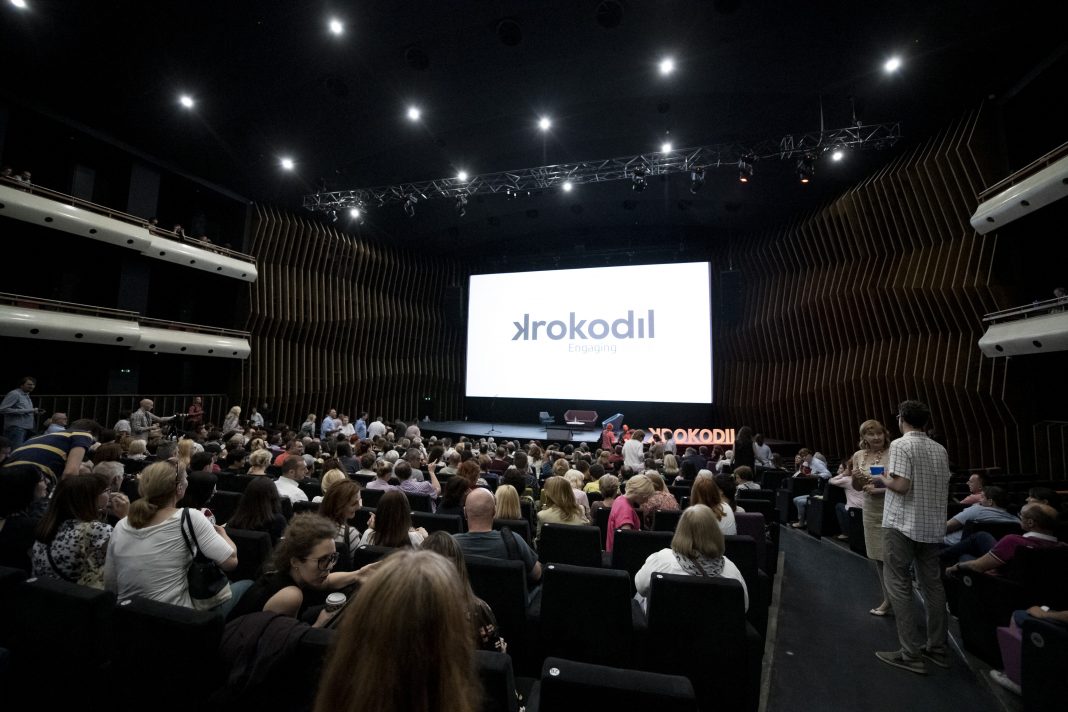
Last year, upon celebrating 10th edition of the festival, we announced the new, somewhat changed concept of the festival in 2019, which would lean more and more towards international literature, though preserving the regional concept in its core. Therefore, the eleventh edition included Lazslo Krasnahorkai, the most read and known contemporary Hungarian novelist, Michel Houellebecq, the enfant terrible of world literature, Georgi Gospodinov, Bulgarian writer of short prose and novels such as Natural novel, Jan Wagner, the most distinguished contemporary poet of German language, but also some of the most famous writers from the above mentioned region, such as Miljenko Jergovic, Svetislav Basara, film director Goran Markovic etc. The festival was always very careful to include the so called “new voices”, and we can take pride in the fact that our festival was the first to present to the audience some of the writers who later had respective careers – such as Rumena Buzarovska, Tea Tulic, Marko Tomas… This year’s selection was no exception. The representation of “new voices” was respectable: Lana Bastasic, a finalist of this year’s NIN prize, Vladimir Tabasevic, its winner, then Bojan Babic, whose newest novel Yahoo is one of the most pleasant literary surprises of 2018. The guests of the festival were also poets gathered around the book Grand Tour, an anthology of contemporary European poetry translated into German, published by Hanser Verlag and edited by Jan Wagner and Federico Italiano, both well known poets and editors.
A week prior to the festival, an unpleasant decision concerning the venue needed to be made being that the weather forecast showed rain, rain and more rain. The first evening of the festival was instead held in the Kombank dvorana – cinema and concert venue situated in the building of former headquarters of workers’ unions – while the second evening of the festival was held in the cinema venue of Dom Omladine (Youth Centre), both in the very center of the city. The debate programs were traditionally held in the Centre for Cultural Decontamination while the international spoken word workshop and presentation was held in KROKODIL Center for Contemporary Literature.
The first evening of the festival unfortunately began with the information that Mr Houllebecq will not be coming due to the mechanical failure of the plane he was supposed to fly with the night before and with the apologies to the visitors for this mishap. When this news was announced, part of the audience protested and some even left the venue. “That was the first time in more than 20 years that I encountered haters on the literary event”, wrote the presenter Mima Simic in an email later on. One could be clever after the battle and analyze and advise what could have been done this way or the other, but the fact remains that the plane he was supposed to fly with the night before did not depart, and that the passengers were sitting in it for four hours with a strong smell of gas and without proper information. Could he have come with a second or third plane on the day of the festival? Probably, but he didn’t, as much as he did not inform us that he will not come until very late on that same day. And so the damage was done.
If we put the interpretations aside, the fact that Michel Houellebecq did not come left his fans disappointed and angry. For a brief moment, it seemed like the most important thing in the world was happening – social networks were booming with negative comments aimed especially at our association. If you are an eternal optimist, you can understand this anger as the sign that literature is still vital and important, though you need the strength of a Buddhist monk to do so. I want to stress one more time that our intention was not to delude anyone, we had another 30 guest writers to take care of, and we did our best not to endanger the rest of the program.
And the rest of the program was just as great as it could possibly be to the full enjoyment of 1200 members of the audience.
On the first night, Rumena Buzarovska, a rising star of regional literature coming from Northern Macedonia, read from the newest collection of stories “I Am Not Going Anywhere”, Vladimir Tabasevic read from his awarded novel “St. Sebastians Delusion”, Jan Wagner and Federico Italiano presented poets from the Grand Tour selection – Maria Barnas of Netherlands and Gabor Schein of Hungary – our legendary film director and writer Goran Markovic was presented through the sofa-interview with the movie critic Ivan Velisavljevic etc. Truly a program to be remembered.
The second day of this year’s KROKODIL festival began with the series of debates in the Centre for Cultural Decontamination with participation of authors from various European countries and continued in the evening in the fully packed cinema venue of Dom Omladine.
One cannot help asking oneself why one is doing something like organizing a big literary festival. It has nothing to do with logic, since it is stressful, underpaid, sometimes even dangerous. My feeling to it is that I like surprises. And each year, there are one or two surprises – unexpected performances on stage that fuel you with the energy that not all of it is meaningless, and that events such as ours are important at least to the audience and the writers that are present. One such surprise was the reading of the well established Bulgarian author Georgi Gospodinov. Sure, we know who he is, we know his books are translated into more than 25 languages, we know that his articles have been published in Guardian and The New York Times, but what at least I did not know was the sincerity of his being, and the simplicity and emotion of his short prose when read out loud. He held the audience by surprise, winning them over by simple means – describing holding hands with his grandma when she was dying, just like they did when he was a child, only that the roles have been changed in the meantime.
The other, completely unexpected performance was by the Slovenian poet Anja Golob. She came to the stage, sat leaning towards the book and started reading – and there was a magical silence in the audience, a concentrated attention, followed by a huge applause and ovations. Her poetry, very private and very universal at the same time, provoked an unanonymous appraisal – and showed the power and horror and beauty of spoken word.
The second night also presented two renowned authors – Miljenko Jergovic and Svetislav Basara, in a joint interview where Jergovic’s Andric-like essay about the writing and the role and responsibility of a writer was often interceded by humorous, sometimes cynical comments of Basara, questioning and discussing the very essence of writing.
The evening program concluded with the cerebral interview of Lazslo Krasnahorkai, moderated by professor of Hungarian language and translator Marko Cudic. Somewhat unusual for the festivals of this kind, Krazsnahorkai and Cudic discussed the relationship of the Satan and God in contemporary world, where they both lie within the society, and not above (heaven) or below us (hell). The end of the festival clearly stated the state of wonder and puzzlement on the direction of our lives within the shaking grounds of the reality today.
Comic breaks were provided by the hugely famous comedian Zoran Kesic whose literary minded comedy skits have been the integral part of KROKODIL festival in the past several years much to the enjoyment of the audience that sat through the three plus hours of intense program.
The third day of the festival also began with the debate program in the Center for Cultural Decontamination, discussing the notions of common language (also known as BHSC language, or Bosnian, Croatian, Serbian, Montenegrin) in regard to the question of common literature and its existence and continuation. Miljenko Jergovic, Lana Bastasic, Vladimir Arsenijevic and Igor Stiks discussed this heated topic on a hot summer day, while the questions from the audience directed the talk into more political discussion, unavoidable in our day and age.
The festival finally ended on Sunday at Krokodil‘s Centre for Contemporary Literature, where the “Word Literary Forum” workshop was held for 4 consecutive days. Three poets and artists from three different states – Switzerland, Serbia and Kosovo – gathered emerging poets interested in spoken word movement, and worked with them on perfecting their stage performance, writing and presentation. On Sunday, they presented what they had been doing in the previous days and it was fantastic. So, the festival ended with young(ish) writers and poets, as it should, hoping there is future for us all, in both literature and life.

